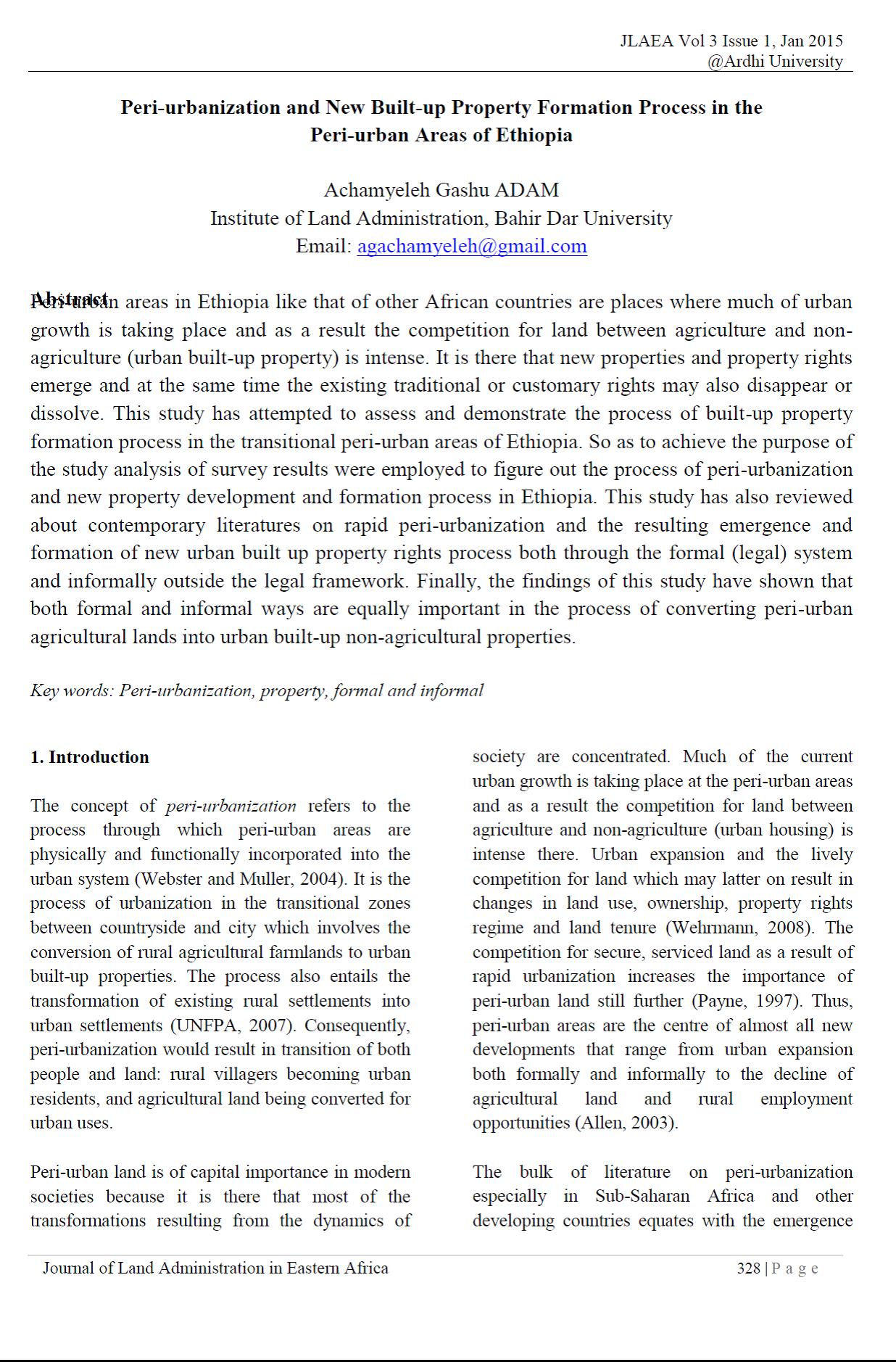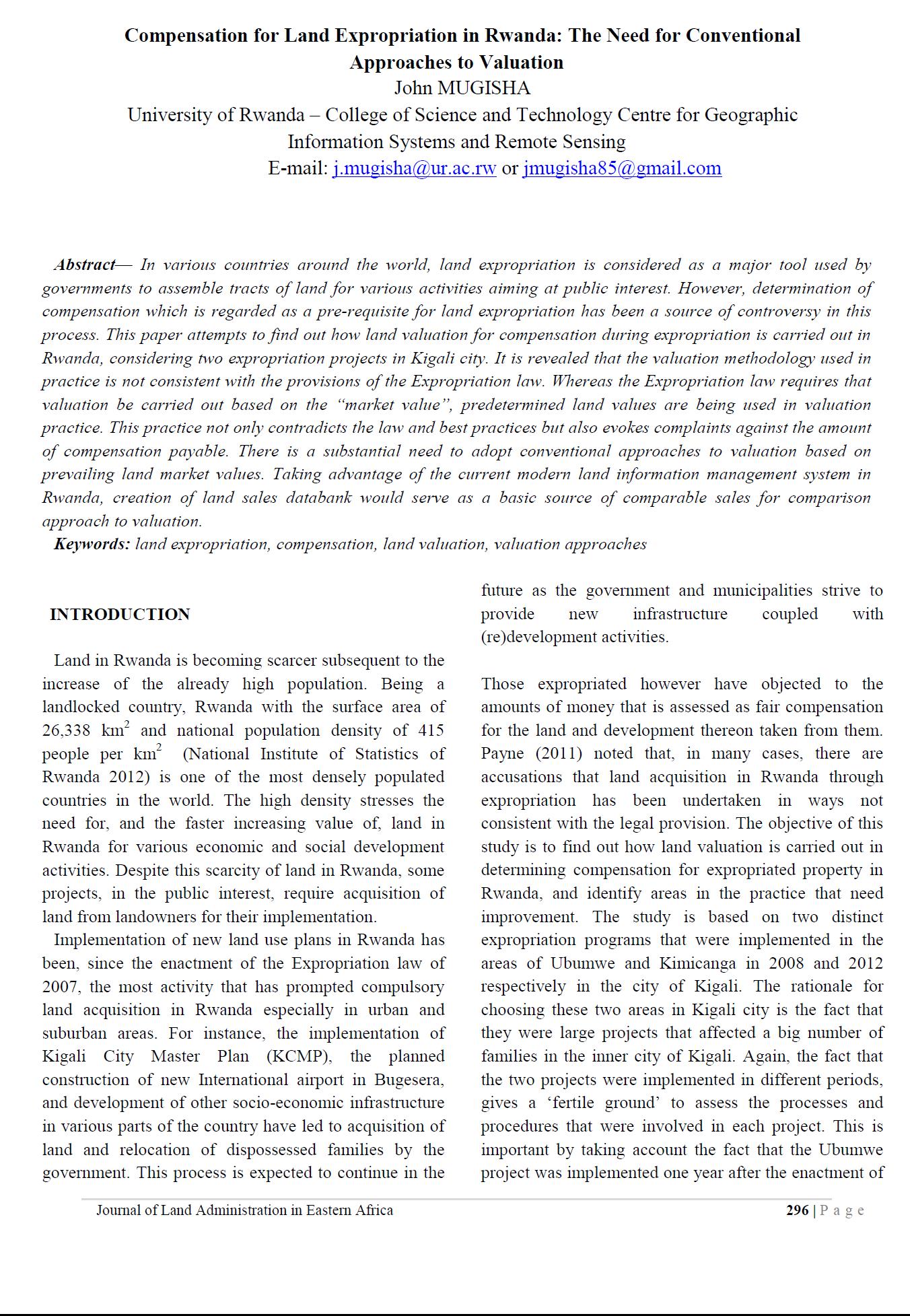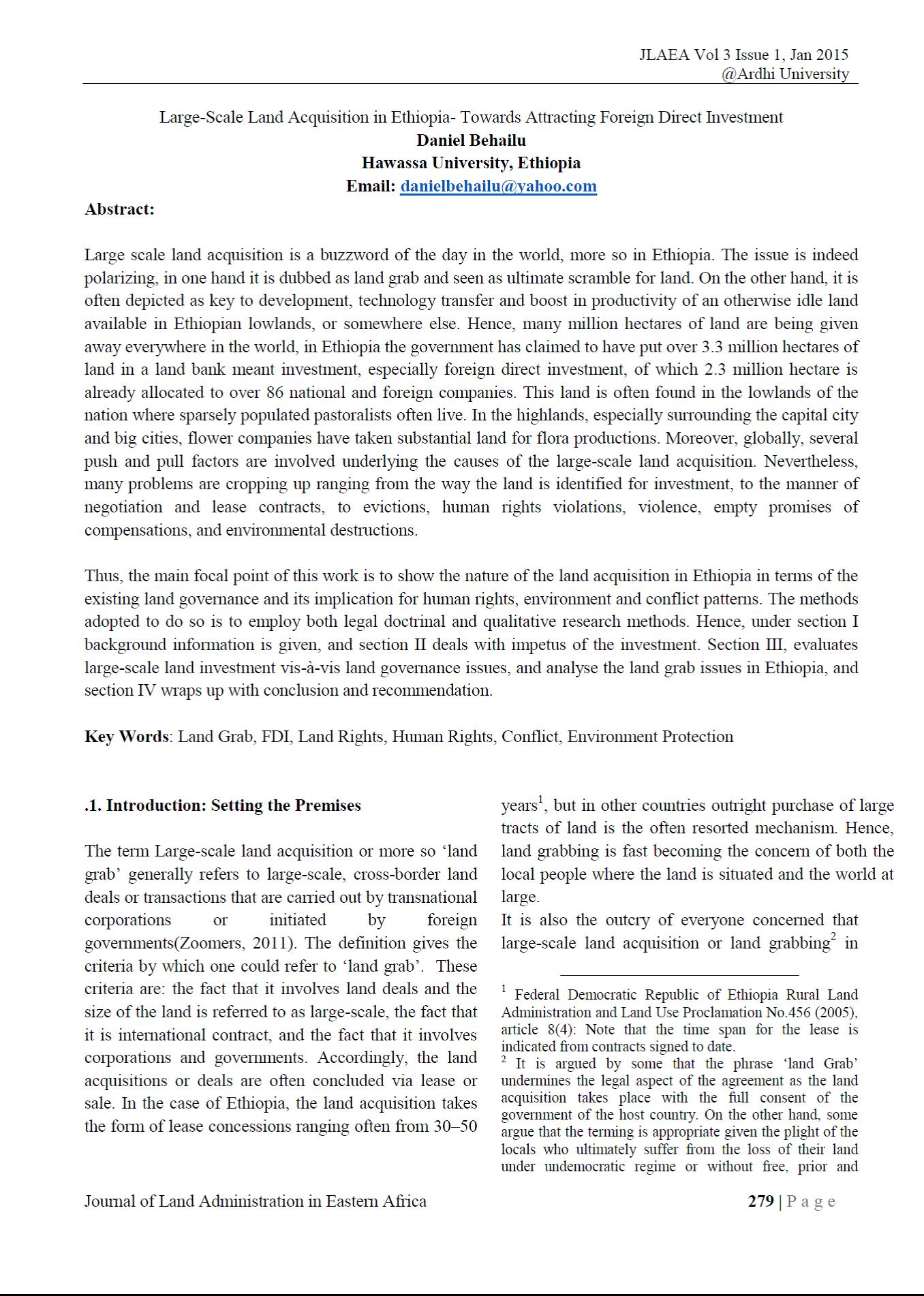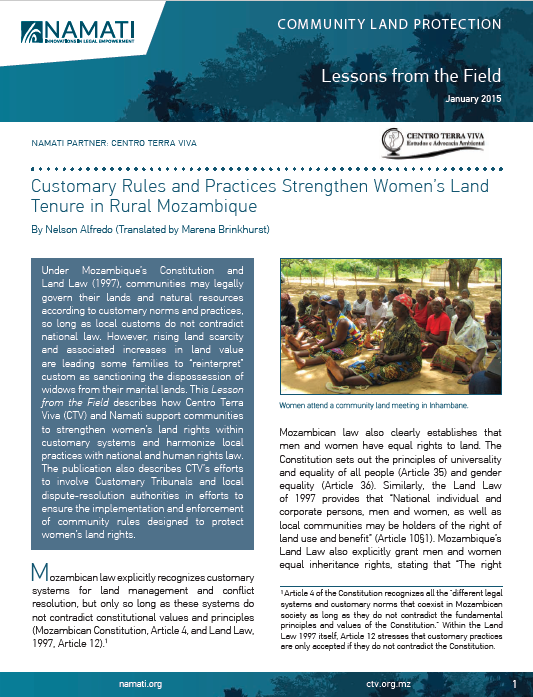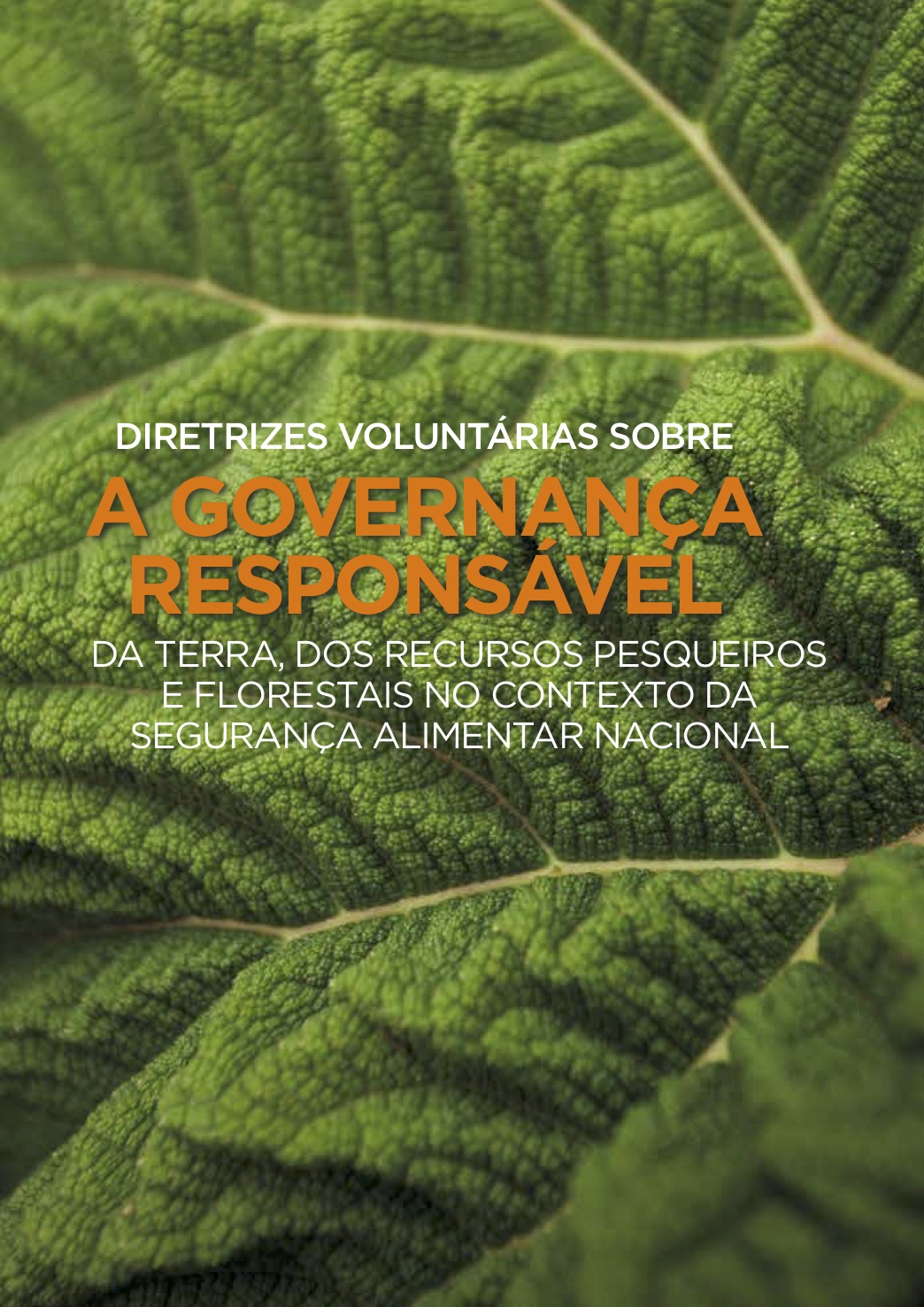Peri-urbanization and New Built-up Property Formation Process in the Peri-urban Areas of Ethiopia
Peri-urban areas in Ethiopia like that of other African countries are places where much of urban growth is taking place and as a result the competition for land between agriculture and nonagriculture (urban built-up property) is intense. It is there that new properties and property rights emerge and at the same time the existing traditional or customary rights may also disappear or dissolve.

